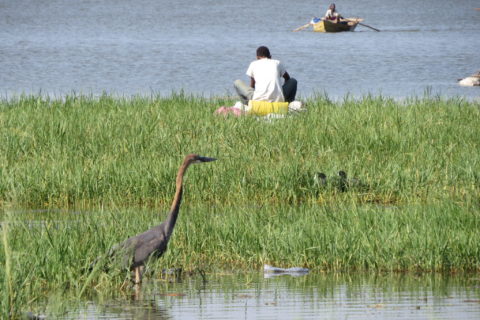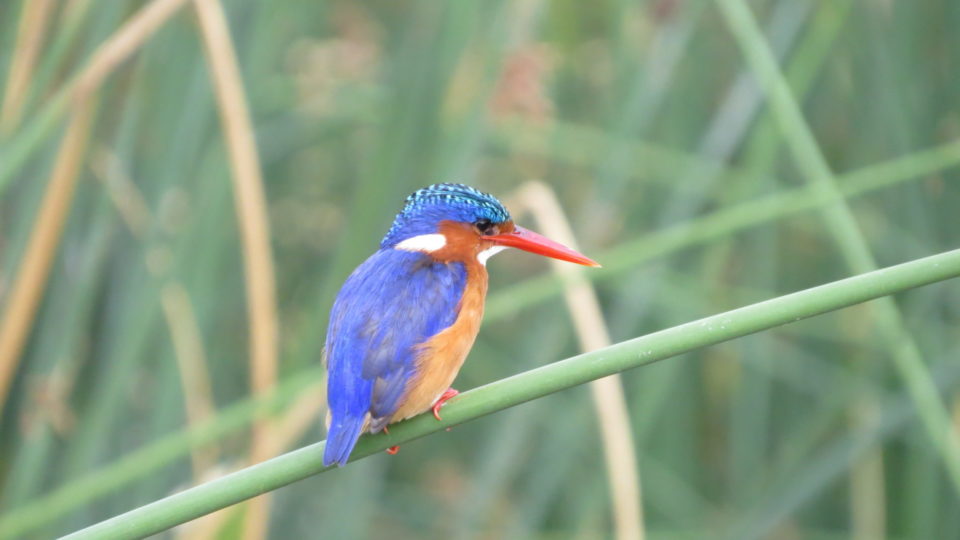On 8th December 2018, the Seventh Meeting of the Parties of African-Eurasian Waterbird Agreement (AEWA MOP7) came to a close in Durban, Kwazulu Natal, South Africa. The five-day long meeting under the theme “Beyond 2020: shaping flyway conservation for the future” started on 3rd December 2018, and brought together more than 250 delegates from different countries. The event provided an opportunity for them to deliberate over and agree on actions that will foster the conservation of 254 species of migratory waterbirds covered by the treaty along the flyway.
“Migratory waterbirds continue to suffer and face many challenges such as climate change, pollution, hunting, ecosystem loss and degradation. We are glad that, based on our analysis of the conservation status report on the population of waterbirds, this meeting of parties has adopted an ambitious strategic and action plan for Africa 2019-2027, which is expected to address the challenges presented. The cause of disappointment however was budget decisions which did not back up this ambitious plan,” said Szabolcs Nagy, delegation lead for Wetlands International and one of the contributors to this report. “However, the new strategic plan presents opportunities for us, together with other partners of AEWA to work for our shared objectives”, he said.
Wetlands International and BirdLife International also launched the results of a major climate impact study during the conference. This new study, a part of our Climate Resilient Flyway project, shows impacts of climate change on wetlands of Europe, West Asia and Africa and no less than 247 waterbird species. The study shows that many High Arctic breeding waders and African waterbirds are predicted to suffer more from the impacts of climate change than the European ones. Therefore, it is essential that their freshwater habitats are safeguarded and managed as climate buffer as much as possible. Read more here.
“We cannot ignore this study,” remarked Merijn van de Leeuwen, consortium lead of the Climate Resilient Flyway project. “And now we have an obligation to keep telling the story, connecting it to people and the wetlands they depend on. We can’t only blame climate change though. Improving land and water management, and safeguarding wetland resources for both birds and people is the key to the solution. And in order to save waterbirds and wetlands, we need to take action on the ground,” he added. This study is unique as it is more linked to the management, and framework of international treaties; it is more practical and it has never been done before for wetlands and waterbirds in this part of the world. One key element of this study is that it can be applied to the Ramsar site network to inform and add to their work, as well as to use it to assess the impact of people’s resilience to climate impact in wetland areas. It will identify where data is needed to expand this network so that all the critical sites are pinpointed.
In the coming year the team will integrate more information into the tool that can be used to protect the waterbirds. The updated version will also be able to estimate to what extent the tool will be able to function under the changing climate, to what extent it will be able to protect the water bird population, and where and how the network of critical wetlands sites for waterbirds need to be managed, and expanded to meet the challenge said Frank Breiner, modeller of the critical site network.

There are lots of opportunities to protect waterbird habitats, either directly or through conservation of wetlands for the ecosystem services they provide to society. For that, it is necessary to align ourselves with other stakeholders, such as hunters, fishermen, as well as decisionmakers in the water, infrastructure and agriculture sectors and connect their needs to the needs of different countries to form a bigger picture. During one of the side events organized by AEWA, Wetlands International and others on “Incentivize wetland conservation” the Civil Society Organisations were urged to take the lead by integrating all these aspects, Instead of waiting for countries and international entities to create policy options. It was also noted that There are many ways we can incentivise wetland conservation: directly targeting birds (eco-tourism) and more importantly, indirectly through selling wetland ecosystems services. “The successful conservation of our nations’ natural resources ultimately depends on the timely and adequate commitment of human and financial resources to get the job done,” observed our colleague Szabolcs Nagy.
Now that we know the impacts of climate change on waterbirds, countries need to proactively set up their conservation practices. As a follow up to this meeting Wetlands International has planned two multi-national workshops in the second half of 2019 in Eastern Africa and West Africa that will aim at exploring how we can effectively integrate wetlands to climate change agenda for countries. It is essential to come together, share best practices of landscape interventions and see how we can integrate wetlands’ interest into the climate agendas of the countries to translate these findings into successful actions.
Merijn van Leeuwen commented, “We call upon the countries that attended and participated in the AEWA MOP7 to join us to form a coalition that works to integrate sound wetland management in the countries’ commitments to the Paris Agreements and to ensure that our wetlands are there and thriving for birds and people by 2050.” AEWA Executive Secretary, Jacques Trouvilliez said: AEWA will make a considerable contribution to the post 2020 objectives in setting the new course for the flyway conservation.
See all resolutions that were adopted here.
Hungary will host the 8th Session of the Meeting of the Parties of AEWA which will take place in Budapest in 2021.

